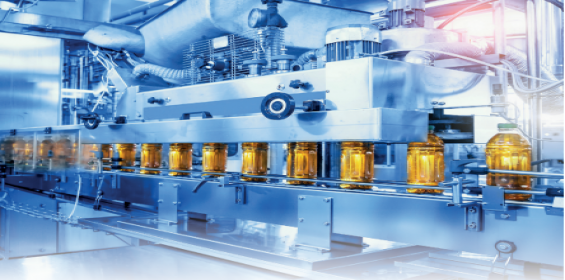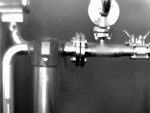Food industry urged to consider nitrogen as an alternative to CO2
Published: 24 November, 2021
The British Compressed Air Society (BCAS) is urging food producers to consider the benefits of onsite nitrogen generation, to help mitigate the risk of CO2 gas shortages in the future. PWE reports
Recent news reports have focused on the impact that the rise in wholesale gas prices is having on the production of carbon dioxide. This is an essential gas used in the drinks industry for soft drinks and some beers, and in packaging to extend the shelf life of fresh food products.
Although the Government has introduced emergency support measures to ensure ongoing production at CF Industries’ Teeside and Cheshire fertiliser plants, where CO2 is produced as a by-product, supply chain issues remain, which are leading to some shortages in shops and a rise in food prices.
However, in several applications, nitrogen gas, which can be generated as part of an existing compressed air installation, can be used in place of carbon dioxide. Vanda Jones, Executive Director at BCAS explained why operators may want to consider alternatives to carbon dioxide, which can help to lower operating costs and ease supply chain issues: “Our manufacturing members have been promoting the benefits of on-site nitrogen generation for several years now - and the recent carbon dioxide supply issue, coupled with the numerous opportunities where nitrogen can be used safely in place of CO2 make this an ideal time for food producers to look at alternative solutions.
“Our manufacturing members have been promoting the benefits of on-site nitrogen generation for several years now - and the recent carbon dioxide supply issue, coupled with the numerous opportunities where nitrogen can be used safely in place of CO2 make this an ideal time for food producers to look at alternative solutions.
She continued to explain that as an inert gas, nitrogen can be used in place of carbon dioxide in smaller breweries, to remove oxygen when purging tanks, thus preventing oxidation and contamination: “It can also be used for clean in place (CIP) pipework and vessel purging, for assisted filling to increase process speed and during bottling to help extend shelf life.
“Elsewhere in the food processing industry, modified atmosphere packaging is used to replace oxygen with nitrogen, significantly slowing down the process of decay by inhibiting oxidation and the growth of microbes.”
Unlike carbon dioxide, Jones also highlights that nitrogen can be produced cost-effectively as a by-product of the air compression process, which can reduce the cost of bought-in gas, in cylinders or in bulk, by as much as 90%: “Compatible with standard industrial compressor systems, many manufacturers now offer nitrogen generators, in which pre-treated air is filtered, and the oxygen, water and carbon dioxide removed. This leaves pure nitrogen, which can be captured at source, and reused for other processes.” With only minimal investment in an on-site nitrogen generator, Jones says this process enables companies to match their production to help meet gas demand, providing greater control over the volume of gas required.
Jones concluded: “With some customers of BCAS members quoting pay-back periods of as little as one year when replacing bough-in cylinders with an on-site nitrogen generator, it is certainly worth speaking to your supplier to discover whether nitrogen gas could offer an alternative to an existing CO2 supply.
“Not only could this help improve on-site productivity and ease the logistics of gas storage, but with forecasters predicting that energy prices will continue to rise, it could help to mitigate against future supply-chain issues too.”
Food producers keen to learn more about on-site nitrogen generation can download a factsheet from the BCAS website at https://rebrand.ly/BCASnitrogen or contact their BCAS supplier for further information.
https://www.linkedin.com/company/british-compressed-air-society/






 FLIR Systems GF343 is said to be a high performance gas imaging camera designed to visually detect Carbon Dioxide (CO2) in real time. The company says incorporating a cooled Indium Antimonide (InSb) detector the FLIR GF343 is able to provide sensitive detection of even tiny CO2 gas leaks. Carbon Dioxide gas leaks are displayed as plumes of vapour in the camera's infrared image.
FLIR Systems GF343 is said to be a high performance gas imaging camera designed to visually detect Carbon Dioxide (CO2) in real time. The company says incorporating a cooled Indium Antimonide (InSb) detector the FLIR GF343 is able to provide sensitive detection of even tiny CO2 gas leaks. Carbon Dioxide gas leaks are displayed as plumes of vapour in the camera's infrared image.
